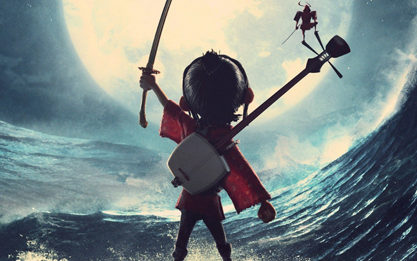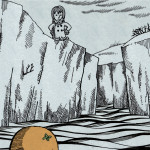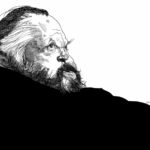“Kubo and the Two Strings is the story of a young boy, Kubo (voiced by Game of Thrones’ Rickon Stark, Art Parkinson), who has a very special ability: the powerful inherited gift of magic-infused storytelling.” – Vox Culture
Laika has finally done it!
If Laika’s goal was to set the bar in stop-motion film, they’ve certainly accomplished it with Kubo And The Two Strings. Most of us know that armature animation is one of the most challenging, laborious animation formats to produce in, which means it is also a very expensive method of animation. But physical animation evokes a different kind of magic than the likes of Finding Nemo, Cars, or The Incredibles — all are great but stop-motion is in a league of its own. ParaNorman was a wonderful film, but Laika has created something uniquely special with Kubo.
Laika’s past film “Coraline” was stunning to watch, and the story stayed true to the book, but the story lacked depth which allowed the amazing visuals to steal the show. Without depth, an armature film will not carve the kind of fan base following that has kids and adults saying “hey let’s watch Coraline again — yay!!” But when’s the last time we said no to watching Nightmare Before Christmas again. Its richly portrayed characters and story never fail to fascinate. Kubo is this kind of film. A stop-motion film to enjoy watching again and again.
With Kubo, the studio had great instincts — creating without a “big name” director. When watching Kubo, one can almost hear the collective collaboration of the creatives slapping hands and cheering one-another on during production screenings. Glad to see the studio step away from a name and reach inside of their own bag of tricks… Great job Travis.
I think the strength of Kubo comes from not trying to compete with other films but rather to passionately study and incorporate a new, original story with some of the heartbeat found in Akira Kurosawa and Hayao Miyazaki’s work. It looks to me as though Kubo pays homage to these amazing Japanese filmmakers while establishing a magical world of its own.
Magic Lives in this Movie
Sometimes full-length animated films go soft in the middle in. After bold beginnings they generally relax their magic, settling into storytelling that clips along until the grand, sweeping production value returns for the more exciting end scenes and fabulous credits. This is not the case with Kubo. The story surprises us — makes us laugh and cry — and every scene is pure magic. Laika’s team of Kubo animators and storytellers have managed to pull off a visual miracle, and because of the armature style, maintains devotion to the magic of animation all the way through the movie. It is a portal into a new Eastern/ Western method of storytelling that must be recognized.
For me Kubo is a must-see on the big screen and I hope theaters will bring it back again and again (like they do with Nightmare Before Christmas). In my animation catalogue I’d put Kubo up on top as making a very nice double-feature with “Princess Mononoke” — a placement which I hope Travis perceives as a badge of honor.
Animated Film Review by Andy Collen
Producer/Director, Happy Trails Animation




